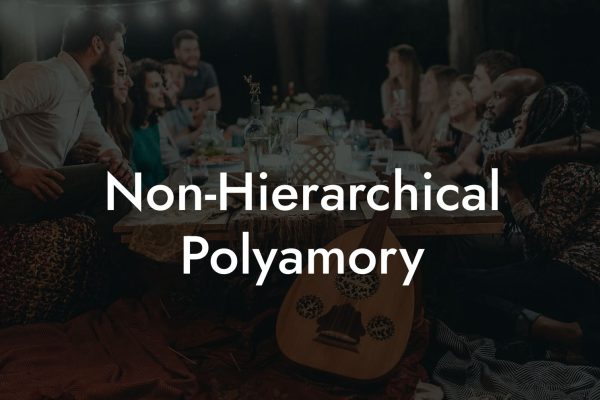In today’s ever-evolving society, traditional relationship structures are being redefined. The rise of non monogamous practices has sparked open discussions around relationship models such as polyamory, polygamy, open relationships, and ethical non-monogamy. As individuals seek more freedom, authenticity, and diverse ways to express love, it’s essential to understand the difference between these terms, how they relate to monogamy, and what they mean for modern relationships in the United States.
The Monogamy Experiment Rethinking Tradition
Monogamy has long been the dominant relationship model in many cultures. It typically involves two people who commit exclusively to each other, emotionally, sexually, and often in marriage. However, more people are challenging this concept, experimenting with alternatives that feel more aligned with their needs and desires.
The Monogamy Experiment is about questioning traditional beliefs about long-term commitment. Many are exploring whether exclusive relationships are the only viable model for lasting love. The rise of dating apps, open-minded communities, and greater acceptance of diverse lifestyles has made it easier for individuals to test different approaches to intimacy and connection.
Polyamory vs. Polygamy What’s the Difference?
While both polyamory and polygamy refer to non monogamous relationship styles, they are distinct in their practice and cultural roots.
Polyamory involves consensually engaging in multiple romantic relationships at once, with the knowledge and consent of everyone involved. It’s an emotionally intimate, non-exclusive relationship model where love and connection are prioritized over sexual exclusivity. Polyamorous individuals may form multiple partnerships, and each relationship can vary in dynamics, whether sexual, emotional, or both. The goal is often to foster deeper emotional connections without the societal pressure to “choose” one person.
Polygamy, on the other hand, is typically understood as one individual being married to multiple spouses, with polygyny (one man, multiple wives) being the most common practice. Historically, polygamy has been associated with certain cultures and religious beliefs, and it often carries significant gendered expectations. Unlike polyamory, polygamy is more often associated with societal and legal structures such as marriage, making it distinct in its approach to non-monogamy.
In the United States, polygamy is generally illegal, but the idea of polyamory is gaining traction, especially within progressive communities where non-monogamous relationships are accepted and explored more freely.
The Open Relationship Model Flexibility and Freedom
An open relationship is a form of consensual non-monogamy where partners agree to allow sexual or romantic experiences outside their primary relationship. Unlike polyamory, which involves multiple romantic connections, an open relationship might focus more on physical experiences without the expectation of emotional bonding. Open relationships allow flexibility and freedom but often require clear boundaries, honest communication, and a high level of trust between partners.
For many, the open relationship model offers an opportunity to explore their sexuality without feeling restricted by the traditional constraints of monogamy. This approach can work well for couples who are seeking to maintain emotional intimacy while also pursuing other connections.
Non-Monogamous Relationships Breaking Free from Tradition
The term non-monogamous is a broad category encompassing any relationship that doesn’t adhere to the traditional idea of one-on-one exclusivity. This includes polyamory, open relationships, swinging, and even relationship anarchy, which challenges the conventional idea of structured romantic or sexual commitments altogether.
Non-monogamous relationships often prioritize communication, consent, and mutual respect. People engaged in these relationship styles believe in the possibility of loving multiple partners simultaneously and that each relationship can be unique. These dynamics encourage a deeper understanding of individual desires and needs, allowing people to navigate their relationships without judgment or societal pressure.
Ethical Non-Monogamy Love without Boundaries
Ethical non-monogamy (ENM) is a term that has gained popularity as people embrace the idea of open, consensual, and honest non-monogamous relationships. What sets ENM apart is its emphasis on ethics—being transparent, communicative, and respectful in all aspects of the relationship. It’s a broader concept that can encompass polyamory, open relationships, and other non-monogamous structures. Ethical non-monogamy means practicing non-monogamy in a way that respects everyone’s autonomy and ensures all partners are aware of the dynamics involved.
With ethical non-monogamy, the focus is on cultivating healthy and intentional relationships where all parties are aware, accepting, and supportive of each other’s needs. It fosters a sense of responsibility, creating environments where everyone feels valued and understood.
The Benefits and Challenges of Non-Monogamous Relationships
While non-monogamous relationships offer many benefits, including freedom of choice, emotional fulfillment, and deeper connections, they can also present challenges. Effective communication is crucial, as navigating multiple relationships requires transparency, negotiation, and constant reassessment of boundaries.
Additionally, some individuals may struggle with jealousy or insecurity, which can arise in any type of relationship. However, those who practice non-monogamy often report increased self-awareness, better communication skills, and stronger relationships built on trust and honesty.
Is Non-Monogamy Right for You?
Exploring non-monogamous relationships is a personal choice that may not be for everyone. Whether you’re curious about polyamory, intrigued by the concept of open relationships, or considering ethical non-monogamy, it’s important to understand your desires and communicate openly with your partners. The key to success in any relationship, traditional or non-traditional, lies in mutual respect, honesty, and emotional intelligence.
